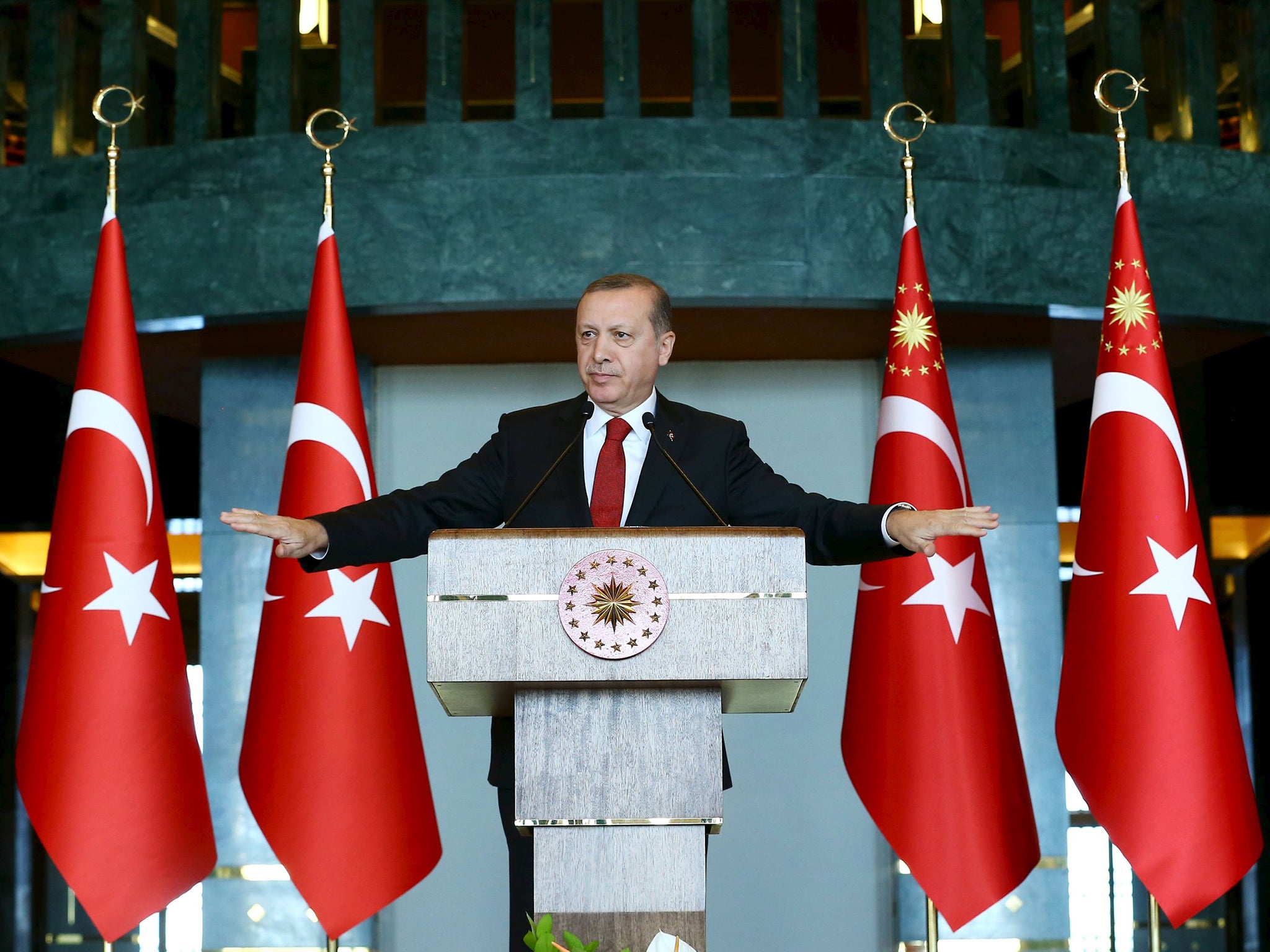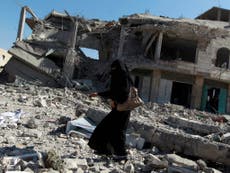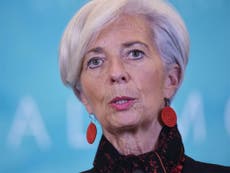This weekend’s Ankara bombing shows how far from peace Turkey has strayed
President Erdogan was the first Turkish leader to attempt to resolve conflict with its Kurdish minority, but his own ambitions have derailed the peace process

Sunday’s bomb attack in Ankara is a tragedy, not only for the 37 so far reported dead and the 127 injured but also for Turkey. With the device exploding in a busy city area, it represents a significant escalation in the PKK’s armed campaign against the central government.
President Erdogan’s response was predictable; he declared his determination to pursue a war on terror (read: against the PKK) until terrorism is “brought to its knees”. At the same time a Turkish court blocked access to social media, including Facebook and Twitter, claiming this was to prevent circulation of photos of the bomb attack.
The PKK’s renewal of the armed conflict, which began with the murder of two policemen at their home on 22 July last year, can be considered an act of desperation. Ironically, it was Erdogan who in 2005 was the first Turkish leader to openly admit there was a Kurdish problem and who paved the way for a peace process, which led to a ceasefire in 2013. But domestic politics and Erdogan’s own ambitions got in the way.
He later stated “I will never accept the term Dolmabahce consensus” - referring to a 10-point plan for a resolution of the conflict agreed on by the AKP government and the Kurdish HDP (Peoples’ Democratic Party). However, when the HDP refused to support Erdogan’s plans for changing the constitution to provide for an executive presidency and one-man rule, in March last year, the peace process was doomed.
A suicide bomb in the Kurdish border town of Suruc last July, killing 32 activists, signalled the end and was considered by the PKK to be yet another attack instigated by Erdogan’s government. The twin bomb attacks on a peace rally in Ankara in October, killing 102 and injuring more than 400, were seen in the same light. But it was last year’s first election results, giving the HDP 80 out of the Turkish parliament´s 550 seats and removing the AKP’s overall majority, that posed the greatest threat to Erdogan’s rule.
A re-election in November reduced the HDP’s seats to 59 and returned the AKP government’s overall majority - but not enough to change the constitution.
Now steps are being taken to remove the parliamentary immunity of five leading HDP deputies as a first step to prosecution, and the HDP is not expected to pass the electoral threshold at new elections, which might be held later this year.
As the HDP’s co-chair Selahattin Demirtas has earlier stated: “We are the only party on earth that can talk with Ankara, Kandil and Imrali [the island where the PKK’s leader Abdullah Öcalan is imprisoned]” - but with its elimination the path to a peaceful settlement will be blocked.
Robert Ellis is a regular commentator on Turkish affairs in the Danish and international press




Join our commenting forum
Join thought-provoking conversations, follow other Independent readers and see their replies